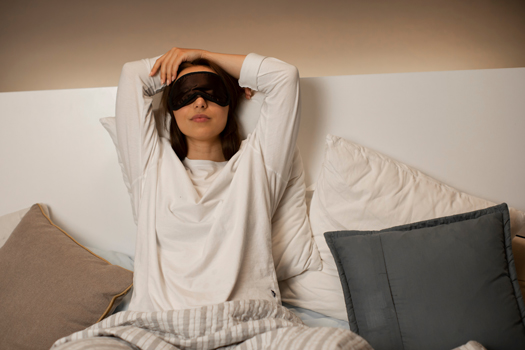
Sleeping after a microdiscectomy may be a bit uncomfortable at first, but there are not usually any restrictions on sleeping positions post-surgery. Since the procedure is minimally invasive, most patients can sleep well on their backs. That being stated, there are some precautions to keep in mind as you get ready to sleep after microdiscectomy surgery. This article lists several tips for patients who prefer to sleep on their backs.
Use Pillows for Extra Support
When sleeping on your back, put a soft, supportive pillow under your knees to maintain optimal spine alignment. You may also prefer to place pillows on each side of your body so you do not excessively toss and turn as you sleep. Doing so reduces the risk of placing too much pressure and stress on what remains of the disc if it was not fully removed. If your mattress is not particularly supportive, you may also need a soft, semi-flat pillow under your lower back for added support.
Watch the Placement of Your Arms
If you put your hands behind your head while sleeping, the stress from this motion may extend down your lower spine. Instead, make an effort to keep your arms down along your sides. It is especially important to avoid the added stress that can go along with putting your arms up or away from your sides if you had spinal fusion surgery with your microdiscectomy.
Try a Different Position if You Experience Any Discomfort
This is more likely to be the case during the early stages of recovery from a microdiscectomy. If you find sleeping on your back within the first week after surgery too painful, temporarily shift your sleep position. If you shift to side sleeping, use pillows between your knees to maintain optimal alignment of your spine. It is best to avoid sleeping on the stomach, since it tends to throw off spinal alignment.
Stick to a Regular Sleep Schedule Post-Surgery
Whether you are sleeping on your back or in another preferred position during your microdiscectomy recovery, you will be less likely to experience post-surgery discomfort if you get sufficient sleep. This means sticking to a regular schedule for going to bed and getting up in the morning. Taking this step ensures you get sufficient restorative sleep. This is important because natural tissue healing processes in your body are more active when you are asleep.
Know When to Contact Your Doctor
As long as you are careful, you should be able to sleep well on your back after a microdiscectomy. However, if you do notice any unusual symptoms that wake you up or are noticeable when you get up, talk to your doctor. Improve your ability to sleep well in any position you prefer by:
• Following your physical therapy recommendations
• Not resting too much so your spine-supporting muscles do not weaken and make it difficult to sleep well
• Sleeping on a supportive mattress—medium firmness is recommended for optimal support
• Being careful to avoid falling asleep on a couch or in a chair that is not supportive of your spine and the surgery location
Even though microdiscectomy surgery is a common and generally quite successful procedure, a hole is frequently left in the outer wall of the disc. In fact, patients with these large holes in their discs are more than twice as likely to reinjure themselves by having what is known as a reherniation. These reherniations often require additional surgery or even fusions. Fortunately, there is a new treatment specifically designed to close the large holes that are often left in spinal discs after discectomy surgery. Barricaid is a bone-anchored device proven to reduce reherniations, and 95 percent of Barricaid patients did not undergo a reoperation due to reherniation in a 2-year study timeframe. This treatment is done immediately following the discectomy—during the same operation—and does not require any additional incisions or time in the hospital.
If you have any questions about the Barricaid treatment or how to get access to Barricaid, ask your doctor or contact us at 844-288-7474.
For full benefit/risk information, please visit: https://www.barricaid.com/instructions.


Comments